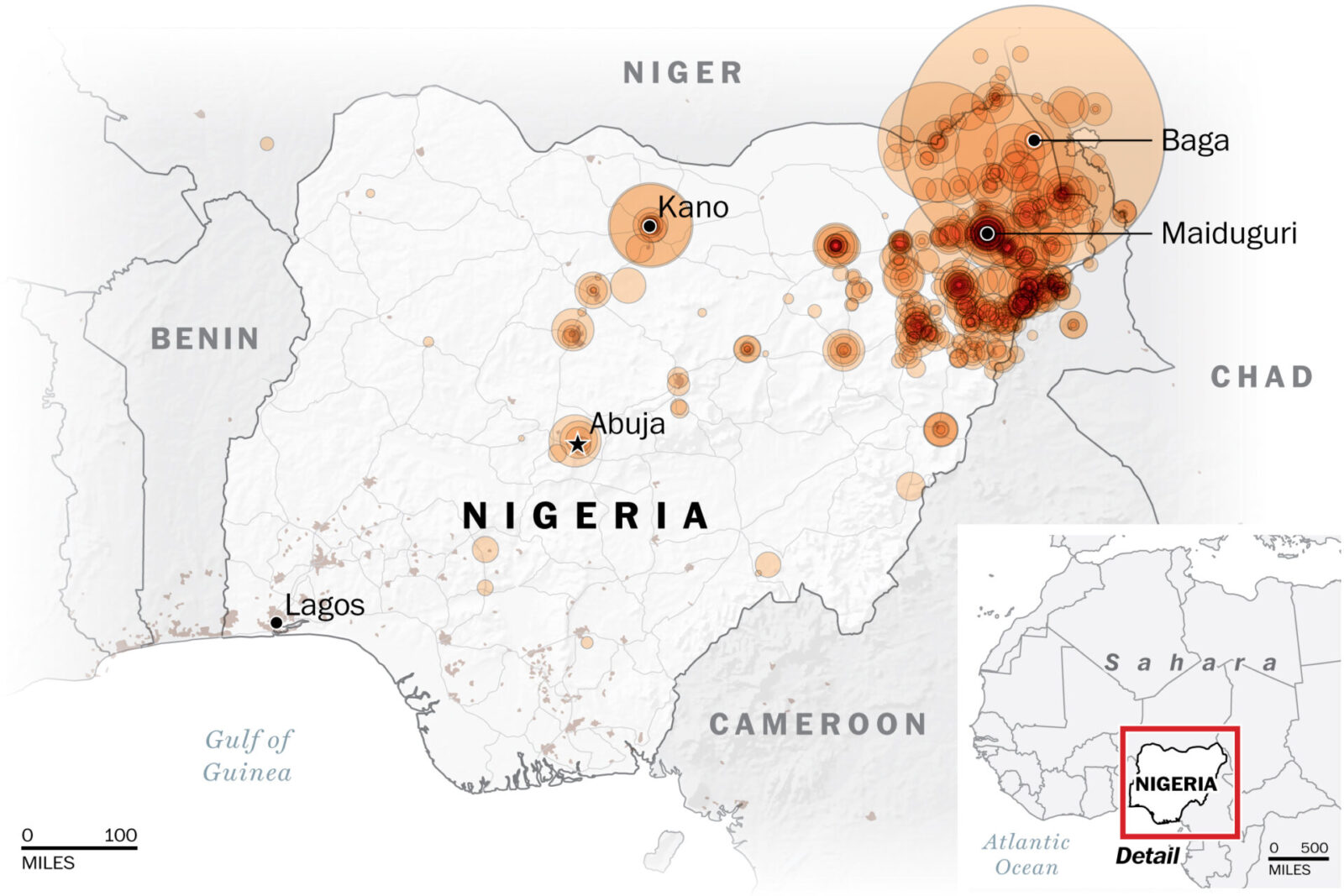The persecution of Christians in Nigeria is not an isolated episode of religious intolerance but a strategic node of global instability. In a landscape where jihadism, ethno-pastoral conflict, and transnational trafficking converge, violence becomes a methodology of control, and faith a form of geopolitical resilience. The U.S.–Atlantic response defines a new paradigm: an integrated moral deterrence, blending religious freedom, intelligence, and power projection into a single doctrine of stability. The Cross thus ceases to be merely symbolic — it becomes a strategic compass, a measure of a system’s capacity to defend human dignity as an infrastructure of global security.
by Cristina Di Silvio
Nigeria lies at the intersection of faith, power, and instability
“I am worthy.” Jorge Luis Borges
Nigeria lies at the intersection of faith, power, and instability. Violence here is not chaos but controlled disintegration — a deliberate erosion of state coherence orchestrated by Boko Haram and radicalized Fulani militias. Each burned church is both a physical loss and a message in the grammar of terror; each displaced community, a new ungoverned zone.
Criminal and ideological networks intertwine, sustaining an economy of conflict where instability itself becomes a strategic asset. This is endogenous hybrid warfare: the fusion of terrorism, criminal enterprise, and corrupt governance. Regionally, Nigerian instability radiates across the Sahel and the Gulf of Guinea, threatening energy corridors and maritime security crucial to Europe.
Globally, the state vacuum opens a field of action for revisionist powers and jihadist networks, destabilizing the Atlantic system’s periphery.The American and European approach is not reactive but architectural. Through multilateral diplomacy, intelligence cooperation, and targeted training, the U.S. builds local capacity to deny maneuver space to armed actors. The designation of Nigeria as a Country of Particular Concern reframes religious freedom as a security metric. In the Atlantic doctrine, to defend belief is to preserve order: wherever dignity is upheld, governance endures; where it collapses, entropy reigns. By merging the U.S. doctrine of moral deterrence with Europe’s human security framework, the alliance constructs a multilayered perimeter of legitimacy — a fusion of ethics and strategy, conviction and command. In Nigeria, the Cross stands at the front line. Each act of endurance by persecuted communities represents a micro-deterrence of conscience against systemic chaos.

Persecution itself becomes a geopolitical metric, revealing the fracture between moral authority and state control. To say “I am worthy,” Borges reminds us, is a strategic declaration: the affirmation of dignity as an act of resistance, and of resistance as an element of deterrence. This is not idealism — it is strategic humanism: ethics as a multiplier of power and a foundation of stability. To neglect Nigeria is to cede strategic depth in Africa’s heartland. T
o defend it is to assert that freedom of conscience and collective security are structurally inseparable. The Atlantic alliance embodies this synthesis: moral conviction, operational precision, and geopolitical realism. The Cross no longer burns in silence — it illuminates the perimeter of civilization.
I am worthy, therefore I exist. And where man has worth, order endures.